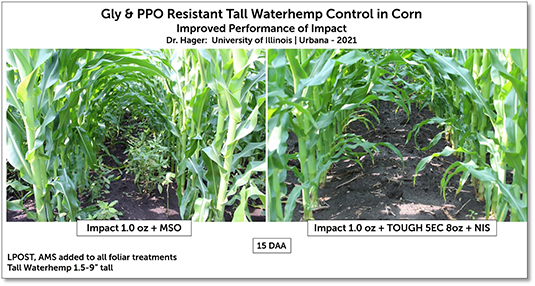CropLife America 2012 Legislative Review: Policy In Flux
The crop protection industry and all related stakeholders experienced great change in 2011, and next year may prove to be no different. CropLife America and our members will continue to closely monitor and engage in discussions surrounding some of the major issues in our nation’s capitol, such as the presidential election and 2012 Farm Bill. Yet public discourse may shift in further scrutiny of crop inputs as 2012 also marks the 50th anniversary of the publication of Rachel Carson’s Silent Spring. Often credited with igniting the environmental movement, the book’s portrayal of crop protection products prompted the industry to improve coordination with federal agencies which ultimately shaped the EPA robust pesticide registration process and helped our industry reach new levels of safety.
In addition, many key policy issues and regulations specific to the crop protection industry will continue to evolve in 2012 and potentially impact all of us from Capitol Hill straight to growers in the fields. Coinciding with the potential of increased regulation and policy concerns is the increasing importance for a discussion of the many benefits of agriculture by creating a positive dialogue around environmental stewardship and food production. All indicators point to another year of great change to include discussions of sustainability and environmental responsibility, and many more opportunities to discuss the benefits of our industry.
NPDES Permitting
New National Pollutant Discharge Elimination System (NPDES) permit requirements remained one of the biggest issues facing the agricultural community in 2011, and will continue to adversely affect pesticide applicators in the foreseeable future. An erroneous 2006 decision from the U.S. Sixth Circuit Court ruled that certain pesticide applications made to, over or near water are subject to additional paperwork and regulatory red tape, with no additional environmental benefit. Leaders in the Senate introduced legislation to help overturn this new NPDES permit requirement, H.R. 872 (“Reducing Regulatory Burdens Act of 2011”), and it received strong bipartisan support. Despite this, the Senate remained in gridlock and was unable to pass any legislation to help clear the regulatory morass.
Most U.S. states have now developed their own permitting program, while six are following a General Permit created by EPA. Full enforcement of the new permitting requirements begins in January, but CropLife America continues to believe that the Sixth Circuit Court’s 2006 ruling was erroneous, and now states are being forced to implement duplicative regulation, and small business owners will feel the unnecessary burden of a paperwork requirement and added liability. In the coming year, CropLife America will continue to advocate the passing of H.R. 872 in the Senate and will work with states and small business owners as they prepare to comply with the court’s unfortunate and misguided ruling.
The Endangered Species Act & Pesticide Registration
The importance of protecting our country’s threatened plants, animals and habitats is recognized under the Endangered Species Act (ESA), an over-arching piece of legislation that impacts pesticide registrations. As part of this, ESA requires that EPA consult with the National Marine Fisheries Service (NMFS) and U.S. Fish and Wildlife Service (FWS) despite conflicts between the Services’ review and those of the EPA. The Services’ biological opinions (BiOps) are scientifically flawed with overestimations of risks to endangered species and place undue burdens on farmers. Extremist groups have sued EPA, alleging the Agency has not consulted with the Services; portions of the lawsuit settlements call for all parties to coordinate on the registered use of pesticides. These lawsuits include the currently-pending suit, Center for Biological Diversity and Pesticide Action Network North America v. EPA, which could impact the registration of more than 300 pesticides. CropLife America is involved as an intervenor in this case to ensure that any potential settlements do not result in unfounded product use restrictions.
The inability of Services’ scientists and EPA to reach agreement on a reasonable risk assessment process has led them to make a request for guidance from the National Academy of Sciences (NAS). NAS will review specific science issues in the current consultation process where there are disagreements. Other Congressional actions have called for the suspension of NMFS pesticide BiOp implementation until the NAS review is complete. This would help to establish putting process improvements into action, and provide funding for NMFS to conduct a study of the economic impact of four flawed BiOps and the validity of the science.
Looking To The Future: Product Stewardship, Modern Agriculture & Sharing The Benefits
The crop protection industry is just one component of the larger story of modern agriculture, and CropLife America is proud to help share that story. An important part of modern agriculture is stewardship, and each sector in agriculture is committed to environmental and consumer safety. One of the crop protection industry’s major stewardship initiatives, pesticide container recycling, has undergone recent developments with the final phase of EPA’s implementation of the Pesticide Container and Containment (PCC) rule this past August. The PCC rule includes new container management language on product labels, and industry has worked closely with EPA to develop the rule to facilitate responsible disposal and recycling of pesticide containers to protect the environment from potential pesticide releases. CropLife America worked closely with stakeholders in the industry to ensure a smooth transition to the new PCC rule in 2011.
Beyond the legislative and legal matters that CropLife America continually monitors, it is equally important for our growers and ranchers to openly and confidently speak about the many benefits of modern U.S. agriculture, and the many positive steps that we take every day to produce healthy food. Initiatives such as the U.S. Farmers & Ranchers Alliance, Alliance to Feed the Future and The Hand that Feeds U.S. are just a few examples of organizations working to strengthen the relationships between consumers, growers and regulators. Each organization will continue to push ahead in 2012 to effectively communicate the many contributions of modern agriculture.
As our industry faces changing policies and regulations, it is important that the agricultural community remain vocal in sharing the benefits of their work, and speaking up for how we must all work together to provide a safe, sustainable and affordable food supply.





